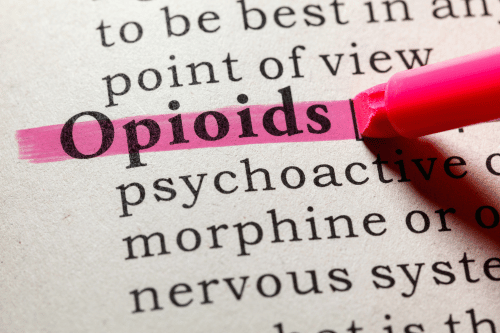

Therapy for opioid addiction has become a central focus in combating the ongoing opioid epidemic in the United States. As fentanyl, heroin, and other narcotics drive overdose rates higher, evidence-based treatment methods rooted in psychiatry, neuroscience, and behavioral health are proving essential. At Sullivan Recovery, our outpatient program in Mission Viejo specializes in therapy for opioid addiction, offering a structured path from drug detoxification to relapse prevention.
We address all aspects of substance dependence, including co-use of alcohol and benzodiazepine, which can complicate narcotic withdrawal treatment. Our clinical approach integrates contingency management, medication support such as buprenorphine and methadone, and mental health care for anxiety, major depressive disorder, and trauma. Each patient receives an individualized treatment plan that considers dose, withdrawal risk, opioid receptor activity, and long-term abstinence goals.
Opioid use disorder is a chronic disease that alters the brain’s reward system. Opioid receptors in the brain adapt to frequent use, creating physical dependence and behavioral patterns tied to drug-seeking. These neurological changes can impact stress regulation, mental health, and emotional control, increasing the risk of relapse.
Modern psychiatry and addiction medicine view substance abuse as a condition requiring treatment, not punishment. Effective recovery includes medication support—like naltrexone, buprenorphine, or methadone—alongside therapy to address pain, cravings, and co-occurring disorders. Therapy for opioid addiction at Sullivan Recovery also accounts for biological effects from long-term use, including altered receptor sensitivity, elevated anxiety, and increased vulnerability to opioid overdose.
Before therapy can begin, most patients must undergo drug detoxification to safely manage symptoms of drug withdrawal. Withdrawal from opioids can involve severe pain, anxiety, depression, and nausea. Complications increase when substances like benzodiazepine or alcohol are also involved.
Sullivan Recovery provides referrals for detox support and helps coordinate withdrawal stabilization before entering outpatient treatment. Medications like lofexidine and clonidine are sometimes used during detox to reduce discomfort and narcotic withdrawal treatment risks.

Medication-assisted treatment (MAT) combines behavioral therapy with FDA-approved medications that target opioid receptors. This strategy improves abstinence rates and reduces overdose risk, especially during early recovery stages.
Methadone is a long-acting full opioid agonist that eases drug withdrawal and blocks cravings. It plays a vital role in narcotic withdrawal treatment, especially for patients with long-term substance dependence. Buprenorphine, a partial agonist, offers similar benefits with a lower opioid overdose risk due to its ceiling effect on opioid receptor activation.
Both medications stabilize the dose of opioids in the body while tapering usage safely, reducing stress and improving overall mental health. At Sullivan Recovery, we monitor medication responses closely and adjust treatment plans based on individual patient needs, co-occurring disease, and any use of alcohol, benzodiazepine, or other substances. These medications are supported by clinical evidence and widely studied in clinical trials focused on opioid use disorder outcomes.
Naltrexone is an opioid receptor antagonist that blocks the euphoric effects of narcotics, supporting long-term abstinence in patients who have already completed drug detoxification. It also reduces the risk of relapse, especially when used in conjunction with behavioral therapy and contingency management strategies. Naltrexone is a key part of medication-assisted treatment in both outpatient and residential treatment center settings.
Naloxone, also an opioid antagonist, is used in emergency settings to reverse opioid overdose, saving lives during critical moments in the emergency department. Its fast-acting nature is essential in treating overdoses involving fentanyl, heroin, or high-dose prescription pain medications. Sullivan Recovery educates families and patients on how to access and administer naloxone as part of overdose prevention and broader health planning.
Therapy for opioid addiction must also address the behavior and psychological factors behind drug use. Major depressive disorder, anxiety, and stress often co-occur with opioid use disorder and require integrated care.
At Sullivan Recovery, we use behavioral interventions rooted in neuroscience and clinical evidence. Our outpatient model includes therapy that aligns with dual diagnosis care, addressing both mental health disorders and substance use.

Contingency management is a therapy model that rewards patients for meeting recovery goals like negative drug tests or attending sessions. This method uses positive reinforcement to modify behavior, increasing engagement and treatment retention.
Cognitive Behavioral Therapy (CBT) is another approach that helps clients manage distorted thoughts, emotional triggers, and risky decision-making patterns. CBT can be effective in reducing cravings, building coping skills, and lowering the chance of relapse.
Relapse is a major concern in any substance abuse treatment plan. Changes in the brain from chronic opioid use can impair judgment, regulate emotion poorly, and reduce impulse control, especially under stress.
At Sullivan Recovery, our outpatient therapy includes relapse prevention education, medication monitoring, and family support. We help clients recognize triggers, reduce exposure to risky environments, and improve self-regulation through ongoing therapy.
A treatment center like Sullivan Recovery plays a critical role in maintaining long-term recovery from opioid addiction. Outpatient care allows individuals to receive therapy while still living at home, maintaining responsibilities, and integrating skills into real-world settings.
We offer multiple therapy modalities for substance use, including group sessions, individual counseling, and psychiatric evaluation. Patients with a co-occurring condition such as major depressive disorder receive comprehensive care to manage both conditions.
Many individuals start using opioids due to chronic pain or after surgery. Over time, what began as pain management turns into substance dependence. Treating addiction requires addressing the original source of pain without returning to narcotics.
Sullivan Recovery supports non-opioid pain strategies, including physical therapy, mindfulness, and behavioral interventions. Our psychiatry team helps clients manage both physical and emotional pain without addictive medication.
Fentanyl is a powerful synthetic opioid that is 50-100 times stronger than morphine. It is often mixed with heroin or counterfeit pills, dramatically increasing overdose rates. Many people struggling with substance abuse are unaware of the fentanyl content in what they use.
This highlights the urgency of evidence-based therapy for opioid addiction. Programs like Sullivan Recovery focus on reducing overdose risk, teaching clients about harm reduction, and promoting access to emergency naloxone.

The study of addiction through neuroscience and psychiatry has led to breakthroughs in understanding how drugs affect the brain. Opioids alter dopamine release, reinforcing repetitive drug-seeking behavior and activating key opioid receptors tied to reward and pain regulation. These changes increase the risk of relapse, particularly under stress or untreated mental health conditions like major depressive disorder or anxiety.
We use this scientific knowledge to personalize therapy for opioid addiction and improve long-term abstinence outcomes. Our psychiatric evaluations help determine if co-occurring disorders or prior substance abuse—including alcohol, benzodiazepine, or other narcotics—are influencing substance dependence, guiding better medication choices such as buprenorphine, naltrexone, or methadone. Every patient receives a treatment plan that reflects both biological and psychological drivers of addiction.
Ongoing clinical trials explore new medications and strategies to treat opioid use disorder more effectively. Innovations include extended-release forms of naltrexone, improved detox aids like lofexidine, and enhanced behavioral models like contingency management to boost engagement and reduce drug withdrawal impact. These studies also assess how medications interact with opioid receptors, regulate dose tapering, and influence mental health during recovery.
Sullivan Recovery stays up to date on clinical advancements and implements best practices supported by addiction medicine research. Every patient benefits from individualized care informed by neuroscience, evidence-based therapy, and results from trials involving naloxone, clonidine, and other tools designed to reduce opioid overdose, ease withdrawal, and support health during treatment at our outpatient treatment center.

Opioid addiction affects every part of a person’s health—physical, emotional, and social. It impacts the brain, disturbs mental health, disrupts relationships, and interferes with work and purpose. Recovery therapy must consider all aspects of well-being, from reducing stress and improving sleep to managing pain, preventing relapse, and supporting life after substance abuse.
Sullivan Recovery’s outpatient program in Orange County supports every dimension of healing. We treat substance dependence using therapy, medicine, and strategies backed by clinical trials, including use of naltrexone, methadone, buprenorphine, and non-addictive aids like lofexidine and clonidine. Therapy for opioid addiction here isn’t just about stopping drug use; it’s about building a healthier, more stable life rooted in abstinence, self-regulation, and reduced risk of opioid overdose.
Therapy for opioid addiction is a life-saving intervention that goes beyond detox. It includes evidence-based medication, structured behavioral therapy, mental health treatment, and continuous support. At Sullivan Recovery, we treat opioid use disorder as a medical condition—with respect, skill, and proven tools.
Whether you’re seeking help for yourself or someone you care about, our outpatient treatment center in Mission Viejo offers a clear path forward. With the right support, healing from opioid, narcotic, or opiate addiction is possible.
If you’re ready to take the first step, contact Sullivan Recovery today and learn more about our outpatient program. Therapy works—especially when it’s rooted in science, delivered with care, and focused on long-term health.
Substance Abuse and Mental Health Services Administration (SAMHSA)
National Institute on Drug Abuse (NIDA)
Centers for Disease Control and Prevention (CDC)
National Institutes of Health (NIH) – ClinicalTrials.gov
At Sullivan Recovery, as an in-network provider we work with most insurance plans, such as:
And More
If you or a loved one are struggling with mental health challenges or substance abuse, reach out to Sullivan Recovery today. Our team of compassionate professionals is here to support your journey towards lasting well-being. Give us a call at 949-836-7180.
The length of therapy depends on the severity of opioid use disorder and individual progress. Most outpatient programs last between 12 and 24 weeks, but ongoing therapy may continue for several months to a year. Long-term support is often recommended to reduce the risk of relapse.
Yes, many therapy programs include strategies for non-opioid pain management. Cognitive behavioral therapy and stress-reduction techniques are used to address both emotional and physical pain. This reduces reliance on narcotics while improving overall health and quality of life.
Many treatment centers now offer telehealth options for individual and group therapy sessions. This is ideal for patients with transportation challenges or those balancing work and family responsibilities. Sullivan Recovery offers flexible outpatient scheduling, including virtual support options.
Relapse is a known risk in recovery and doesn’t mean failure. The treatment plan is reassessed, and adjustments are made—such as modifying medications, increasing therapy sessions, or adding support services. Continued engagement in therapy helps rebuild stability and move forward in recovery.